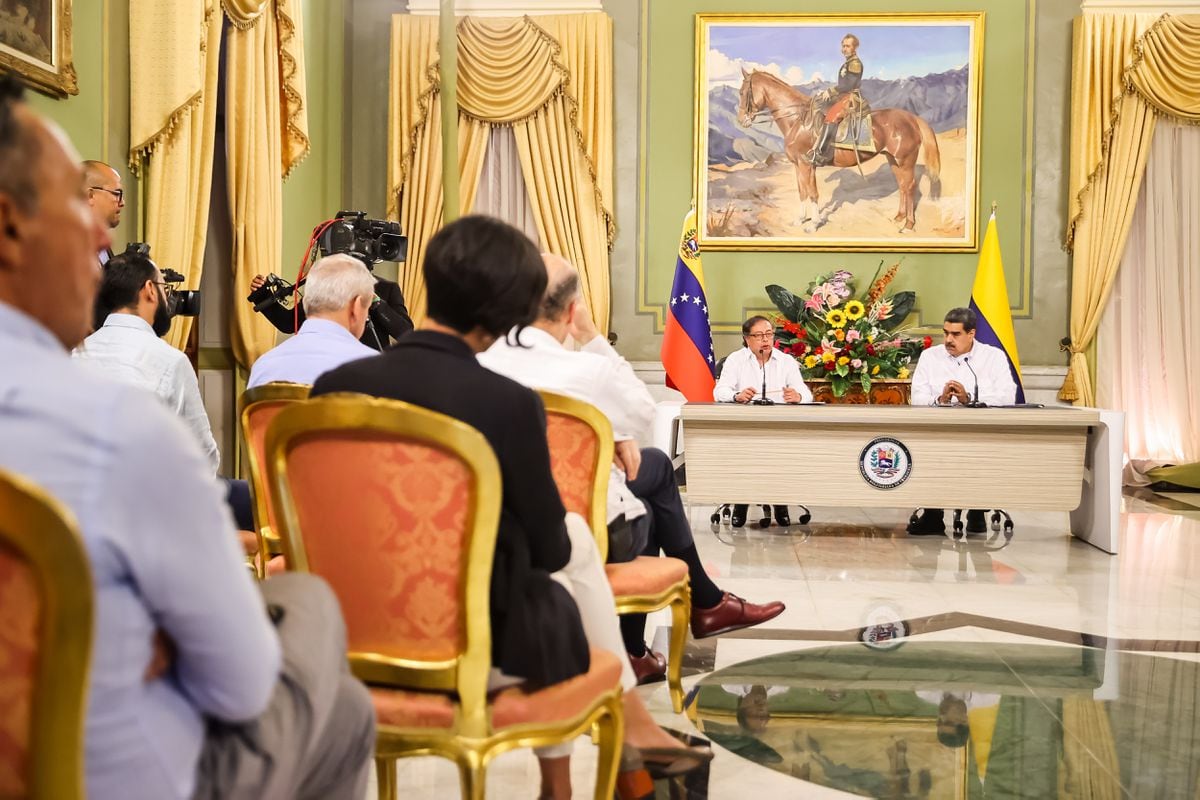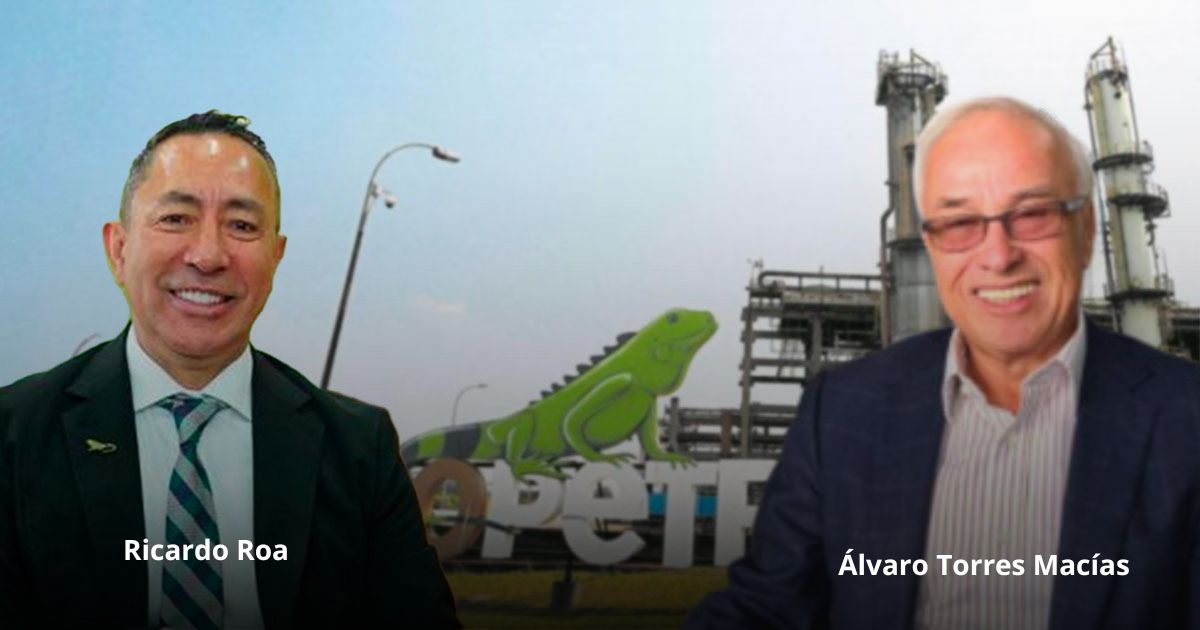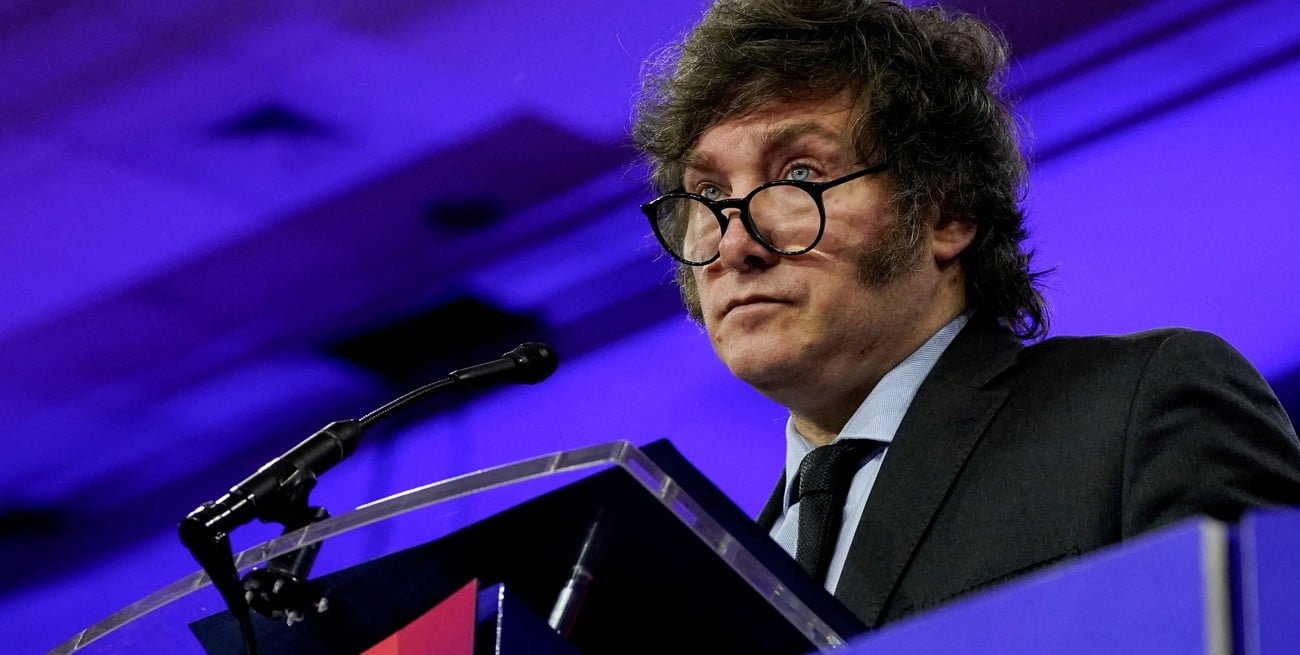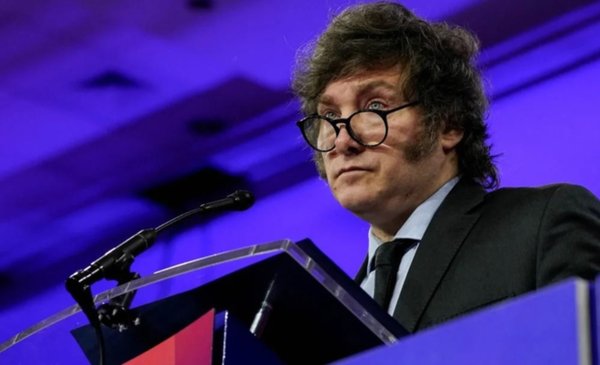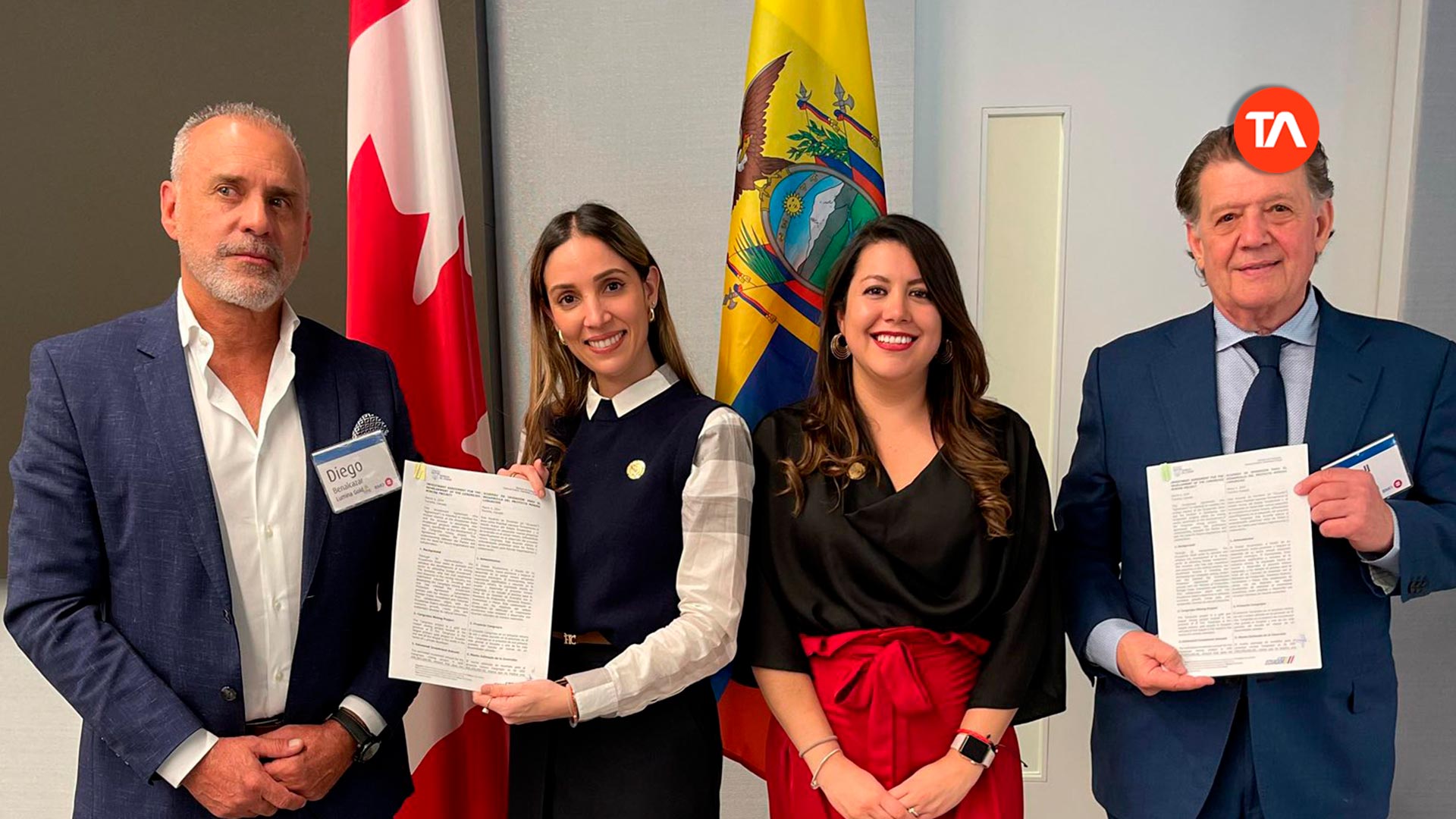Nicolas Maduro and Gustavo Petro, trying to maintain a relationship that has given international credit to the former and one of their government’s greatest achievements to the latter, met on Saturday in Caracas for the fifth time in the past year. In a joint press conference held at the end of the meeting at Miraflores Palace, the two presidents spoke about implementing a bilateral energy integration plan for the benefit of the two countries. “It is very possible that Ecopetrol will become a partner of PDVSA in the exploitation of Venezuela’s gas fields and oil fields,” Petro explained.
The Colombian president had justified the decision moments ago, saying: “We will bring from Venezuela the energies that still exist and the raw materials to make Colombian gasoline cheaper and to sustain the transition to clean energies through gas.” Since coming to power, Petro has proposed a rapid energy transition to decarbonize its economy, but has made clear over time that this will be done in a gradual and orderly manner. For its part, the Venezuelan economy depends largely on oil revenues, especially now that it has obtained a license from the United States so that PDVSA can operate outside the scope of international sanctions.
The issue of immigration was also on the table, with a particular focus on the situation in the Darien Gap. Petro has proposed, as he did at a migrant summit held in Palenque a few weeks ago, to reach an agreement with the United States so that migrants arriving at its border from the south could be returned to their country of origin. This mainly affects Venezuelans, who for the first time in history have surpassed Mexicans in the number of people crossing the Rio Grande. Petro explains that this return should be encouraged through the “humanization program” developed by Washington, which includes compensation for migrants returning to their country so that when they return to their country they can improve their situation.
Neither Petro nor Maduro referred to the political moment in Venezuela in their public statements. Petro has strongly supported negotiations between the Chavez government and the opposition, even mediating the issue with Joe Biden in the White House. Maduro, who is open to easing sanctions on oil and gas, gave his word that presidential elections would be held in the second half of 2024 and allowed the opposition to organize primaries in which they were elected by an overwhelming majority. Corinna Machado. However, Machado remains disqualified by Chavista-controlled institutions, and today was unable to attend those elections, straining relations between all parties.
Petro, who was once disqualified as mayor of Bogotá by Colombia’s comptroller’s office – a decision that was later overturned by the Inter-American Commission on Human Rights – strongly defends that it is the ballot boxes that determine who governs, not administrative decisions that can be manipulated. . When it became known that Machado had been excluded, Pietro publicly defended her, statements that the Chavismo certainly did not like. Although Petro’s critics accuse him of condescending to Maduro, the president has always maintained that in Venezuela there must be a democratic and agreed transition that offers guarantees, for both Chavismo and the opposition, after elections with all the guarantees.
Petro was accompanied in Caracas by Counselor Alvaro Leyva. First Lady, Veronica Alcocer; Minister of Energy and Mines Andrés Camacho; Environment Minister Susana Mohammed; and Director of Social Prosperity, Laura Sarabia. Sarabia returns to the government’s front lines after he was forced to leave it months ago due to spying on his son’s nanny, a matter that the prosecution is currently investigating. The president did not want to lose her to his side, and once again made her part of the hard core that made the most important decisions in the country.
the news
Analysis of current events and the best stories from Colombia, every week in your inbox
Recepion
Colombia and Venezuela severed their relations during the government of Iván Duque, but resumed them as soon as Petro came to power, more than a year ago. The Colombian president said on this occasion that turning away from the neighboring country was “profound stupidity” and could only be achieved “when ideology and sectarianism submerge the soul and heart.” “In many parts of the world, there are experiences where, despite the ideological, cyclical and personal distances between leaders, they have never allowed relations to break down, and have never committed the folly of paralyzing their trade flows.”
Finally, Maduro and Petro discussed the issue of peace, which includes all of Venezuela, where the majority of the guerrilla leaders of the ELN live. In theory, countries will work to establish tourist destinations in the Amazon Basin, where criminal groups currently operate. “It is possible to build a non-predatory economy, a clean economy, that will provide the people of both countries with much more money than the exploitation of the illicit, mining-based economies that prey on the Amazon rainforest,” Petro said. Maduro responded that he would give his full support to the peace called for by Petro because “Colombia’s peace is Venezuela’s tranquility.”
Subscribe here To the EL PAÍS newsletter about Colombia and Here on the channel on WhatsAppAnd get all the keys to information about current events in the country.

